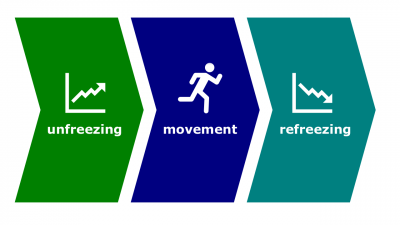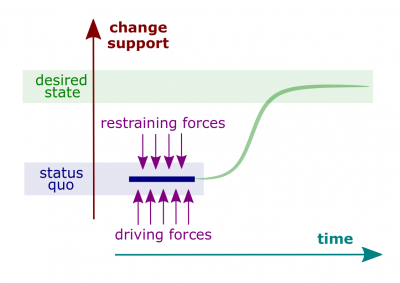Difference between revisions of "Change process model"
(→Related concepts) |
|||
| (2 intermediate revisions by the same user not shown) | |||
| Line 1: | Line 1: | ||
| − | [[File:Change-model.png|400px|thumb|right|[[Change process model]]]][[Change process model]] (hereinafter, the ''Model'') is a [[model]] designed to outline a change implementation in [[ongoing | + | [[File:Change-model.png|400px|thumb|right|[[Change process model]]]][[Change process model]] (hereinafter, the ''Model'') is a [[model]] designed to outline a change implementation in [[ongoing operation]]s. |
==Related concepts== | ==Related concepts== | ||
| − | *[[File:Status-quo.png|400px|thumb|right|[[ | + | *[[File:Status-quo.png|400px|thumb|right|[[Change-support analysis]]]][[Status quo]]. A Latin phrase meaning the existing state of affairs. |
| − | ==Related | + | ==Related lectures== |
#[[Project Management Quarter]]. | #[[Project Management Quarter]]. | ||
[[Category: Septem Artes Administrativi]][[Category: Articles]] | [[Category: Septem Artes Administrativi]][[Category: Articles]] | ||
Latest revision as of 21:22, 28 April 2023
Change process model (hereinafter, the Model) is a model designed to outline a change implementation in ongoing operations.
Related concepts
- Status quo. A Latin phrase meaning the existing state of affairs.

